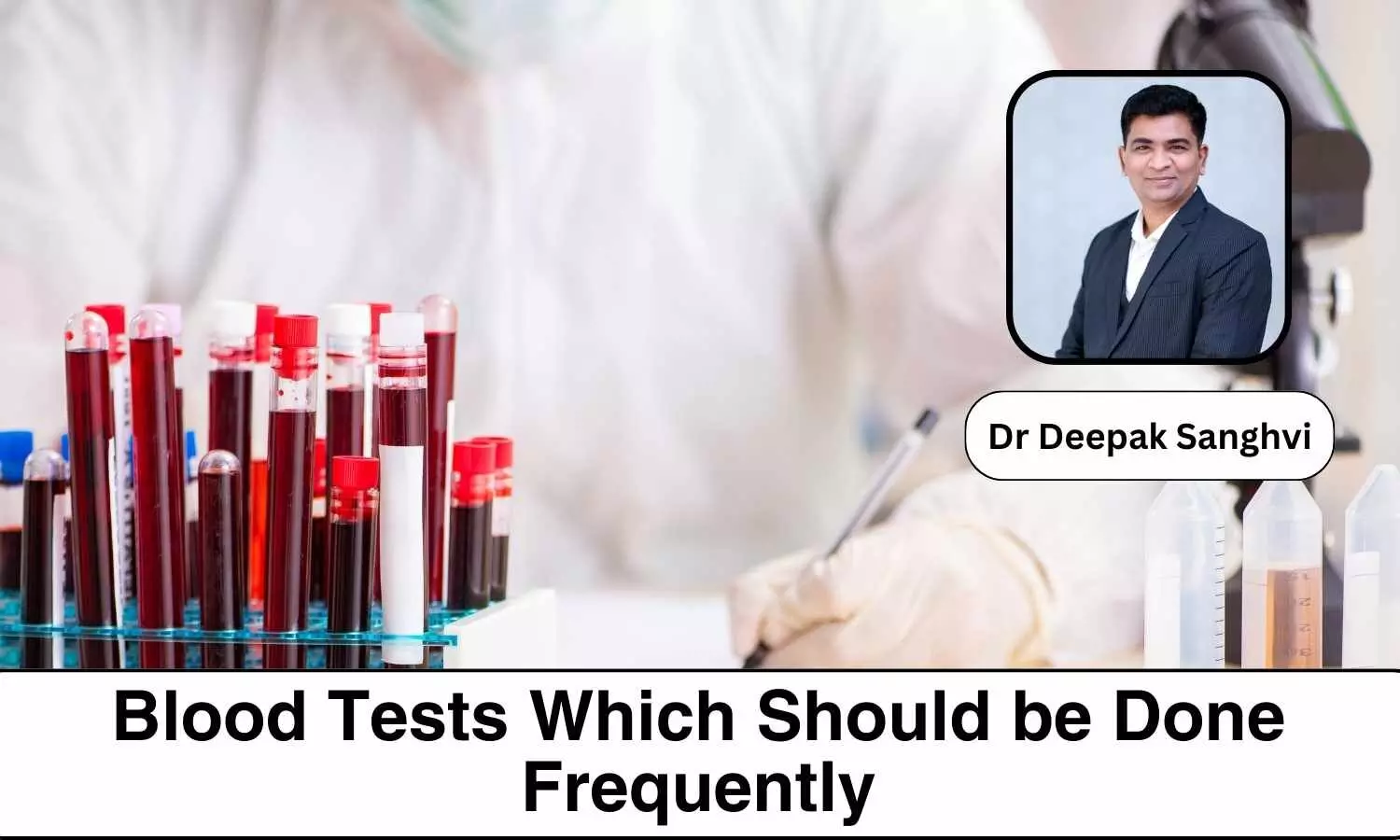India grapples with a high burden of infectious diseases such as tuberculosis, typhoid, hepatitis and other fever-causing illnesses. India is also home to one of the largest number of diabetics. Factors like sedentary lifestyles, unhealthy diets, tobacco use, and stress contribute to the increasing prevalence of NCDs.
Diseases transmitted by vectors such as mosquitoes, including malaria, dengue fever, and chikungunya, pose significant health risks in many parts of India, particularly during the monsoon season.
Certain tests are ordered more often than others. Let us look at some of the most commonly ordered blood tests and their uses.
According to the US Centres for Disease Control and Prevention (CDC), 70% of medical decisions depend on laboratory test results, which shows clinical laboratories’ important role in healthcare diagnosis.
Furthermore, doctors usually prescribe multiple diagnostic tests for the early detection and monitoring of diseases with diagnostic tests such as blood tests, imaging scans, and genetic screening.
These tests not only help identify risk factors and detect diseases in their early stages but also assist healthcare professionals in tracking disease progression, adjusting treatment plans, and providing personalised care.
Some of these tests are :
1) Complete blood count: The Complete Blood Count (CBC), a blood test, measures red blood cells, white blood cells, and platelets. Changes in the body, no matter how big or small—a mild infection, an immunological problem, or even cancer—first cause changes in the different blood components. Therefore, a routine Complete Blood Count (CBC) test can detect these slight variations, aiding your doctor in diagnosing any underlying medical conditions.
2) Blood Glucose Tests: There are several tests that help quantify the amount of glucose or sugar in the blood. The most common ones are the fasting blood sugar test and the HbA1c test, which helps in risk stratification of diabetes. Diabetes is associated with a number of serious complications that lead to hospitalisation, morbidity, and even premature deaths in diabetic patients.
3) Lipid Profile: This test assesses triglycerides, HDL (good cholesterol), and LDL (bad cholesterol) levels. It aids in determining the risk of stroke and heart disease. High cholesterol itself does not cause any symptoms, so many people are unaware that their cholesterol levels are too high. Therefore, it is essential to find out what your cholesterol numbers are.
Too much cholesterol in your body is a risk factor for heart disease. Too much cholesterol in your blood builds up in the walls of your arteries, causing a process called atherosclerosis, a form of heart disease.
4) Liver Function Tests (LFTs): A liver panel test, also known as liver function tests (LFTs) or hepatic function panels, is a group of blood tests that assess the health and function of the liver. These tests typically measure levels of various enzymes, proteins, and substances in the blood produced or affected by the liver. Common components of a liver panel include alanine transaminase (ALT), aspartate transaminase (AST), alkaline phosphatase (ALP), bilirubin, albumin, and total protein.
These tests help diagnose liver diseases such as hepatitis, cirrhosis, and fatty liver disease, as well as monitor liver function and the effects of certain medications or treatments. Abnormal results from a liver panel may indicate liver damage, inflammation, or dysfunction, prompting further evaluation and management by healthcare providers.
5) Kidney Function Tests (KFTs): A renal panel test is used to find or rule out potential kidney impairment or disease. Depending on the circumstances, it may be used for diagnosis, screening, or monitoring. This includes multiple measurements. The components tested include Serum blood urea nitrogen, Creatinine, BUN/creatinine ratio, Uric acid, Total protein, Albumin, Globulin, Electrolytes (Na/K/Cl), and Urine.
6) Tests for thyroid function (TFTs): Thyroid function tests typically include measurements of TSH, T3, and T4 levels to assess the thyroid’s health and function. Abnormal results from these tests can indicate thyroid disorders such as hypothyroidism (underactive thyroid) or hyperthyroidism (overactive thyroid), which can cause symptoms like fatigue, weight changes, mood swings, and changes in heart rate.
Thyroid function tests help diagnose thyroid conditions and guide treatment decisions, including medication dosage adjustments and monitoring of thyroid function over time.
7) Blood Typing and Grouping: This test ascertains your Rh factor (positive or negative) and blood group (A, B, AB, or O). It is crucial for the transfusion of blood and organ transplants.
8) Erythrocyte Sedimentation Rate (ESR): The ESR test, or erythrocyte sedimentation rate test, is a simple blood test used to detect inflammation in the body. It measures the rate at which red blood cells settle at the bottom of a test tube over a certain period. When inflammation is present, specific proteins in the blood cause red blood cells to clump together more quickly, resulting in a higher ESR.
While the ESR test does not diagnose specific conditions, it serves as a non-specific marker of inflammation. It is often used alongside other diagnostic tests to help identify and monitor various inflammatory conditions such as infections, autoimmune diseases, and certain cancers.
9) C-reactive Protein (CRP): This test measures levels of CRP, a protein produced by the liver in response to inflammation. It helps assess the severity of inflammation and is used to diagnose and monitor conditions such as infections, autoimmune diseases, and cardiovascular diseases.
Healthcare providers in India commonly prescribe these tests for routine check-ups, screening, and diagnosing various medical conditions.
However, the specific tests ordered may vary depending on individual health needs and symptoms. It’s essential to consult with a doctor for personalised recommendations and interpretation of test results.
Disclaimer: The views expressed in this article are of the author and not of Medical Dialogues. The Editorial/Content team of Medical Dialogues has not contributed to the writing/editing/packaging of this article.





